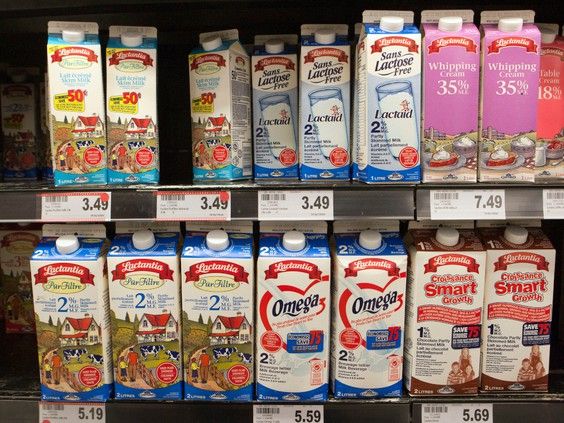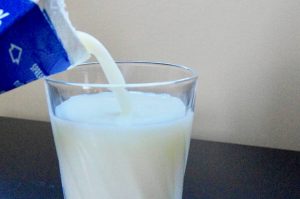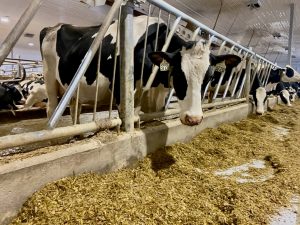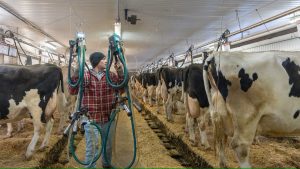
Given their independently rabid followings, it’s amazing the worlds of true crime and cheese haven’t yet collided into a hit Netflix series. After all, cheese is the most stolen food item in the world: an estimated four per cent of the world’s production falls victim to enterprising and hungry thieves each year.
There are plenty of small-time supermarket pickpockets, but much more interesting is the world of organized cheese crime that involves multi-million dollar Parmesan heists, cheese-smuggling rings and the mafia’s long history with the dairy biz that dates back to the days of Al Capone. More recently, Italian crime syndicates have been under the microscope for allegedly fixing cheese prices, suppressing competition and forcing restaurants and grocers to use their products.
The same thing happens in Canada — except police can’t investigate and no one can bring charges, because we’ve legalized our dairy cartel. We call our government-approved system of fixing prices and limiting competition “supply management,” a term that is seemingly designed to bore the average consumer, lest they realize how badly they’re being taken advantage of.
Prior to the pandemic, Canadians were already getting fleeced by this dubious arrangement. The Organization of Economic Co-Operation and Development says that Canada’s “market price support” averaged $2.9 billion per year between 2000 and 2017. Of this overcharge, $2.6 billion a year, or nearly 90 per cent, went to milk.
To put things in perspective, the infamous bread-fixing scandal that outraged consumers across the country allegedly overcharged customers by between $2.5 billion and $5 billion in total over the course of 14 years.
Now, things are about to get a lot worse, with Canada’s de facto dairy cartel announcing large, across-the-board price increases in 2022. The Canadian Dairy Commission (CDC), the Crown corporation that controls the price dairy farmers get for their milk, has recommended a stunning 8.4 per cent increase in the cost of wholesale milk — which will affect virtually every dairy product, from cheese to yogourt — and a staggering 12.4 per cent increase in the price of butter.
Sylvain Charlebois, senior director of the Agri-Food Analytics Lab at Dalhousie University says this means the cost of milk, butter and yogourt will likely “skyrocket” in the new year. It’s the CDC’s highest price hike in over 50 years and it comes at a time when Canadians are already struggling to afford the rapidly increasing costs of everything from housing to furniture, gas, meat and more. Inflation is ripping past the Bank of Canada’s (BoC) target range of one to three per cent, hitting 4.4 per cent in October, and a recent report from the agri-food lab suggested these numbers may be significantly underestimating the increasing cost of food.
The CDC’s increases of 8.4 and 12.4 per cent are significantly higher than the rate of inflation. While costs will always vary by sector, this raises the question of whether the CDC is raising prices unreasonably, an inevitable outcome of a centrally planned system where prices are determined through political calculations rather than market mechanisms. And the CDC’s tactics certainly don’t inspire confidence.
The price hike was announced under the shadowy cloak of a Friday afternoon, the traditional time for companies and governments to release news they hope the public will miss. It’s one thing when private businesses use such tactics, but it’s an entirely different matter when a Crown corporation with vast power over the affordability of day-to-day living does it.
“Dairy farmers want more money? Fine, but stop hiding your numbers and show verified data and more transparency to the Canadian public,” Charlebois tweeted on Sunday.
If supply management is to retain any veneer of legitimacy, and it may already be too late, the process and its outcomes must be transparent to the public. Crown corporations shouldn’t hide from public anger, but listen to it carefully.
Such massive increases deserve to be discussed and debated. As does the entire system of supply management, which, through quotas that keep supply artificially low and import restrictions and tariffs that often exceed 200 per cent, hurts the Canadian public, who are forced to pay ever-higher prices in order to benefit a small number of farmers.
Canada’s legalized dairy cartel has long drained consumers’ wallets, but double-digit price hikes that are decided behind closed doors and surreptitiously announced should raise red flags that maybe something smells here — and it isn’t the cheese.

























